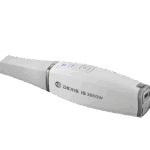Align Technology Inc, San Jose, Calif, announced on July 18, 2014, that the Federal Circuit reversed the final determination issued by the International Trade Commission (ITC) against Align in the ‘562 case (the “Enforcement Action”), in which the ITC held that Align’s 2006 Consent Order with OrthoClear and certain individuals—including individuals involved with ClearCorrect Pakistan—did not cover importation by electronic transmissions because the order did not expressly mention electronic transmissions. According to a press release from Align Technology, ClearCorrect, Round Rock, Tex, had attempted to rely on this technicality to avoid a trial on whether ClearCorrect and its former OrthoClear employees breached the Consent Order when they imported digital dental data from Pakistan to make ClearCorrect aligners.
Align Technology considers the Federal Circuit decision “a total win,” saying that “it will now be able to proceed with its contract-based enforcement action, taking full advantage of the separate patent infringement findings from its related ITC infringement case against ClearCorrect.”
The Federal Circuit agreed with Align that as a procedural matter, the ITC should not have reviewed (and reversed) Administrative Law Judge Roger’s ruling denying ClearCorrect’s motion to terminate. The Federal Circuit held that such rulings are not reviewable by the ITC under the ITC’s own rules until after the completion of the investigation, and that the ITC never waived its rule.
Further, because the Commission could on remand simply waive the regulation, reach the same result, and bounce the case back to the Federal Circuit, the court decided also to reach the substantive issue regarding the interpretation of the consent order. The Federal Circuit rejected the Commission’s claim that the ITC had a historical practice of only permitting cease-and-desist orders prohibiting electronic transmissions if the orders mentioned such transmissions explicitly. The Court ruled that the language used by the parties in the 2006 Consent Order was adequate to prohibit importation by electronic transmission, and remanded the case to the ITC to determine at trial whether the former OrthoClear (now ClearCorrect) employees violated the Consent Order by admittingly transmitting digital dental data to ClearCorrect—a process the ITC has already found to infringe multiple Align patents, according to information from Align.
The Court did not reach the question of whether section 337 gives the ITC jurisdiction over electronic articles—an issue Align won with both the Administrative Law Judge and the ITC, and which is now the subject of a separate ClearCorrect appeal.
The case will now be remanded back to the ITC, who will presumably assign a new ALJ to handle the case going forward, as Administrative Law Judge Rogers has since retired. Align expects the new ALJ to set a status conference to discuss the schedule for further handling of the case.








